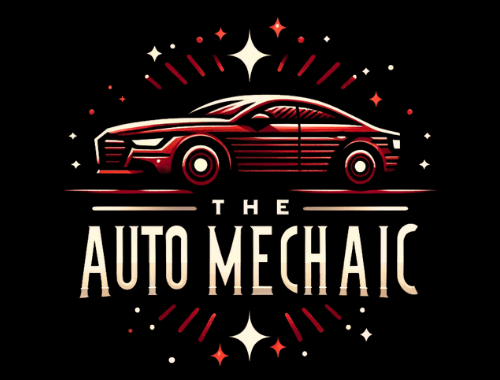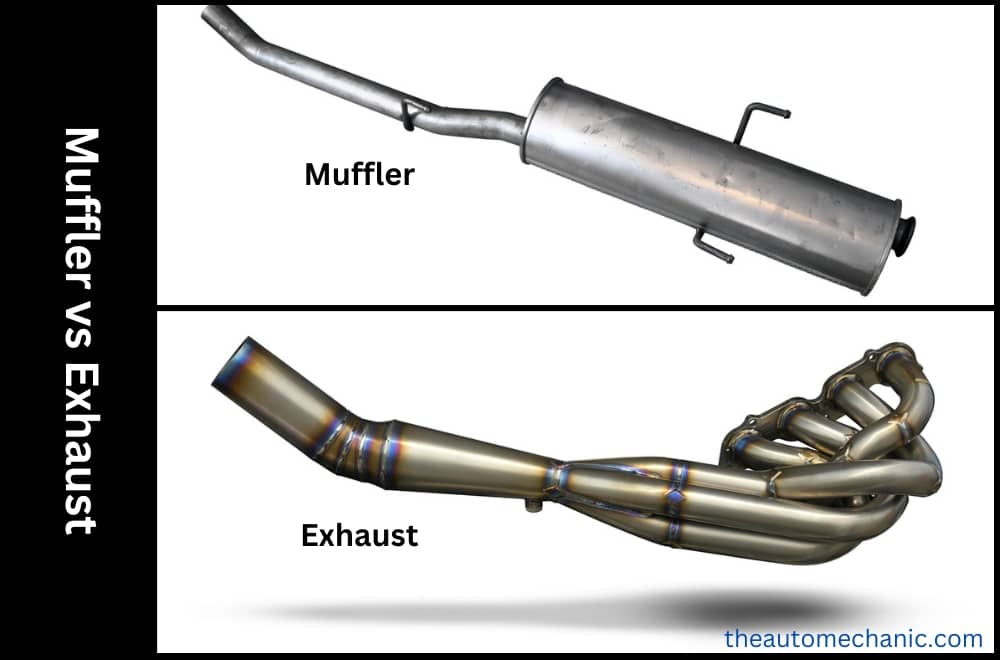The difference between a muffler and an exhaust system is that a muffler uses fins to reduce noise, while an exhaust system uses pipes to reduce noise.
A muffler also helps cool down and protect your engine, whereas an exhaust system only protects it from heat.
A closer look at how exhaust systems reduce emissions
All vehicles emit carbon dioxide, nitrous oxide, and hydrocarbons. These gases are released into the atmosphere as a result of vehicle combustion. Exhaust systems play a crucial role in reducing these emissions by capturing and removing them from the engine before they escape into the atmosphere.
Exhaust systems typically consist of three basic components: an exhaust manifold attached to the cylinder head, an exhaust pipe connected to the manifold, and an exhaust gas recirculation (EGR) valve routing some of the exhaust gases back into the intake system for use in combustion.
What is a muffler, and what is it used for?
Mufflers reduce an engine’s noise. They are typically made of rubber, cloth, or metal.
A muffler is a device attached to an internal combustion engine that reduces the noise produced by the engine. It may also be referred to as a silencer, which is used interchangeably with a muffler.
Mufflers come in two main types: exhaust and intake mufflers. The exhaust type is usually found on engines with an open-element design. In contrast, you can discover engine intake types with a closed-element design.
How does an exhaust system work?
An exhaust system is a system of pipes, hoses, and related components that removes heat and pollution from an automobile’s engine.
An exhaust system uses a series of valves to direct air or gas flow from one part of the engine to another. The valves open and close when the pressure in one part reaches a certain level.
The exhaust system is composed of three main parts:
- The pipe that contains the air or gas being expelled from the engine
- The muffler, which reduces noise by reducing pressure in the exhaust pipe
“The muffler and the exhaust system work together to make your engine more efficient and productive.”
At one point, vehicles produced a lot of noise, which made driving difficult, but technology has overcome this. Hence, in the battle of Muffler vs. Exhaust, it is always hard to say who is more important.
How does the exhaust system affect fuel economy?
An exhaust system is a device that allows a motor vehicle’s engine to expel its combustion products, usually unburnt fuel and unburned carbon dioxide, through an exhaust pipe.
The efficiency of an engine can be increased by increasing the flow of exhaust gases from it.
A more efficient engine can save fuel and reduce pollutants.
The amount of power an engine produces is related to the air it takes in, so improving the exhaust efficiency will lead to higher power output.
What are the benefits of having a good muffler system?
The muffler system can reduce the noise of your engine and make it more efficient.
Some of the benefits of having a good muffler system include:
- reduces noise, making your engine more efficient and less noisy
- increases fuel efficiency
- protects car parts
- prevents carbon monoxide poisoning
The drawbacks of muffler problems on the exhaust system
While trying to resolve the tug-of-war between the Muffler and the Exhaust, the muffler problem is a common exhaust system problem. It can be caused by several things, such as clogged exhaust, worn muffler, or faulty hangers.
The most common and severe drawback of the muffler problem is that it will cause an increase in harmful emissions from your car’s engine. These problems can also lead to premature wear and tear on your car’s other parts.
The most common type of this problem is when the mufflers are clogged with debris, such as leaves and dirt. This leads to a decrease in airflow, which then reduces the engine’s power output. Another type of this problem is when the hangers are worn out, which causes vibrations and noise during acceleration, braking, or idle speed settings.
How do you know if your muffler needs to be repaired or replaced?
One of the most common questions that car owners ask during the Muffler vs. Exhaust fight is how to know if their muffler needs to be repaired or replaced. Replacing a muffler is usually cheaper than fixing it, so it’s essential for car owners to know the signs.
The first sign of needing a new muffler is if your car emits black smoke from its tailpipe. This is caused by excess carbon in the exhaust system and can mean that your muffler has a leak and needs replacing.
The second sign that your car needs a new muffler is if it emits an unusual noise when driving, especially at higher speeds. This could be caused by a damaged gasket or loose bolts inside the exhaust system, which have come loose, causing noise and loss of power.
Final word
Muffler vs. Exhaust has been a debate for many years, and the argument is still not resolved. The main reason for this is that there are two different opinions.
One opinion says that exhausts are more efficient than mufflers because they allow more air flow. The other says mufflers are better because they don’t let as much air pass through them as exhaust.
In conclusion, whether you think mufflers or exhausts are better, they both have their benefits and drawbacks. In different situations, one should use both to get the most out of your vehicle.

Bruce William is a professional content writer and vehicle engineer with extensive car maintenance and repair knowledge. His expertise spans all vehicle parts, offering practical solutions for various automotive issues. Bruce provides valuable insights through his website articles to help readers maintain their cars for optimal performance and longevity.

